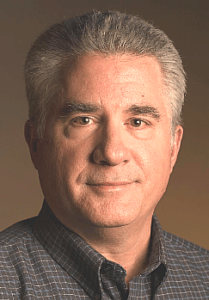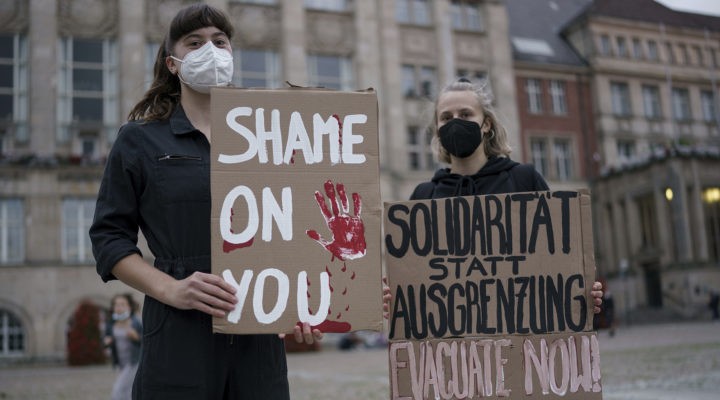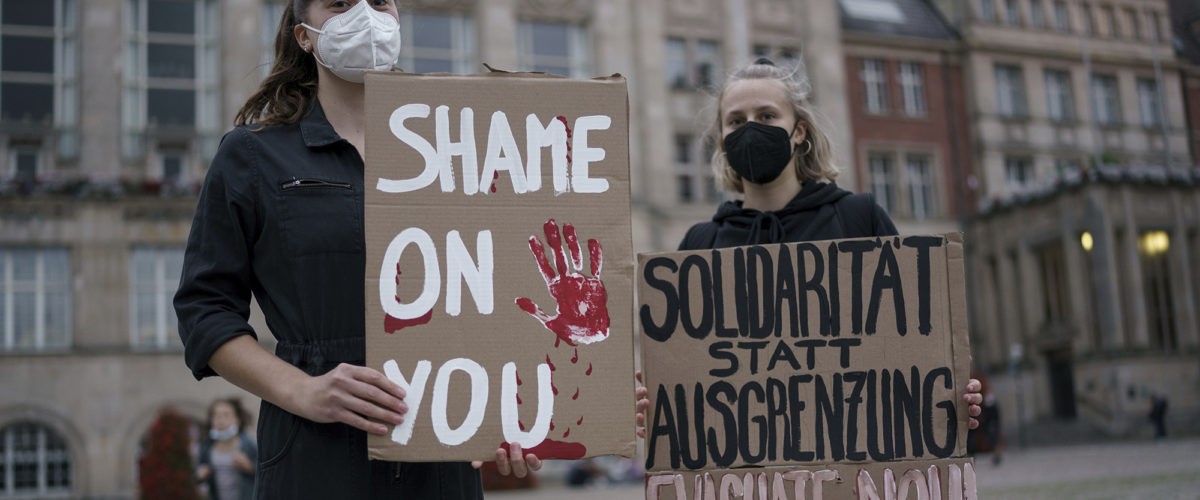I’ve been trying to write a country song that people in Afghanistan can sing in the days to come. It also applies to lots of other folks America has pledged eternal love for, only to disappear when the thrill is gone.
Here’s the first verse:
She loved me, then she left me,
Took off in the middle of the night.
She plucked out my heart, then she tore it apart.
Could somebody turn out the light?
I don’t mean to make light of the indescribable human tragedy unfolding in Afghanistan. I’m trying to laugh through bitter tears to stave off rage and despair.

Erich Bridges
I’ve had the privilege of meeting, interviewing and helping many Afghan refugees who came to America and other Western countries after 9/11. I’ve seen them build new lives here, even as they cherished hopes for better days in their homeland. I have dear friends and colleagues who risked their lives to serve the Afghan people as Christian aid workers inside Afghanistan.
One of my friends never came back. She was kidnapped and presumably lies buried on some Afghan hill known but to God. Those who loved her never will forget her, nor will the many Afghan women she helped and blessed.
But America surely will.
How we roll
That’s how we roll these days. We come in like gangbusters, promising victory, freedom, truth, justice and democracy, no matter what it takes. After a year or a decade, maybe longer, we split — whether we delivered on our solemn promises or not. Exceptions: We maintain major military forces in Europe and East Asia, generations after hot wars there. I guess those weren’t “forever wars” (although we have yet to sign a peace treaty with North Korea 68 years after the Korean War).
True, maybe our promises were impossible to keep in Afghanistan, a place that has defeated the likes of the Soviet war machine and Alexander the Great’s armies. I’ve heard and read lots of chin-pulling philosophical discussions of this conundrum in recent days, even as people are still dying on the streets of Kabul, even as educated Afghan women once again cower at home and put on their full burqas. We can argue that issue, or just-war theory, or the evils of American imperialism, in the weary days ahead.
“Could we have a moment of silence, maybe even a tear or a prayer, for the millions of Afghans we have cynically, callously abandoned to their fate?”
But could we have a moment of silence, maybe even a tear or a prayer, for the millions of Afghans we have cynically, callously abandoned to their fate? Or the many thousands of Afghans who put their lives directly on the line to help Americans there, now desperately trying to get out? Or the 250,000-plus internal refugees already heading for Afghanistan’s borders, soon to be followed by countless others?
The easy, obvious comparison is Vietnam. An unwinnable war. A determined insurgency fueled by ideology and outside powers. A distant, confusing Asian battlefield.
But I think more of neighboring Cambodia, and the hideous “sideshow” U.S. forces operated there during the endgame of the larger Vietnam debacle. When we were tired, when we had wrung as much out of that tormented country and its hapless people as we could, we left them to the tender mercies of the Khmer Rouge, who were far worse than the Taliban. Up to 2 million Cambodians — a quarter of the entire population — died in the four-year bloodbath that followed. Last time I checked, Hun Sen, a former Khmer Rouge cadre turned authoritarian strongman, has ruled there for more than 35 years.
“To be an enemy of America can be dangerous, but to be a friend is fatal,” warned Henry Kissinger. He should know; his realpolitik machinations helped pave the way for the Cambodian genocide.
Crucial difference
There’s a crucial difference, of course, between the Southeast Asian wars and Afghanistan: A major attack on our homeland was planned and directed from Afghanistan on 9/11. We didn’t know what was coming next. Only the purest of pacifists and antiwar activists opposed military response at the time.
“More than 60% of Afghanistan’s 39 million people are under age 25; they’ve never even known Taliban rule.”
George W. Bush’s conflation of the Afghanistan response with the invasion of Iraq two years later, the so-called “war on terror,” was based on a pretext that later proved false. The Iraq adventure distracted from and weakened the original mission in Afghanistan to rout Al Qaeda, overthrow their Taliban sponsors and stabilize the country. But the military legitimacy of the Afghan action remained.
Once there, we and our NATO allies promised the Afghan people we would protect them from the re-emergence of Taliban tyranny, help them secure relative freedom and create opportunities for education and economic development. We also vowed to prevent the return of foreign terrorists, who remain a clear and present threat to America and our allies to this day.
Granted, we didn’t do a very good job building a democratic society atop the rubble of an ancient culture permeated with corruption and tribal rivalries. But millions of Afghans were able to build new lives, get an education, start businesses, access health care and hope for a better future. More than 60% of Afghanistan’s 39 million people are under age 25; they’ve never even known Taliban rule.
Remaining in Afghanistan at relatively little cost (compared to our enormous expenditure of life and treasure elsewhere) has manifestly been in our national and strategic interest, despite Barack Obama’s and Donald Trump’s unwise desire to bail out. The essential stalemate we reached with the Taliban in recent years — with a small American ground presence and essential logistical and air support for Afghan forces — enabled us to prevent their return to power. It also protected the fragile gains of many Afghans, prevented the return of foreign terrorists and kept a new tsunami of Afghan refugees from washing across Asia, Europe and our own shores.
‘America First,’ part two
With the Biden administration’s cynical, poorly planned, hasty abandonment of Afghanistan, all those bad outcomes now will occur. And we will remind our allies and enemies that we are weak, unreliable and open to challenge anywhere.
What happened to “America is back” on the foreign stage? Who knew Biden would promote Trump’s odious, isolationist “America First” policy, using Trump’s unilateral agreement with the Taliban to leave Afghanistan as an excuse that he had “no choice” but to pursue a headlong retreat?
“Who knew Biden would promote Trump’s odious, isolationist ‘America First’ policy?”
“This is just a sliver, a fragment, of the strategic and moral disaster President Biden has wrought in Afghanistan,” writes Michael Gerson in The Washington Post. “The military and foreign policy establishment was strong enough to resist Trump’s mania for global abdication because the 45th president was a buffoon. The 46th president got his way because he is not. Biden had the foreign policy experience and standing to insist on implementing Trump’s buffoonery — to abide by Trump’s shameful ‘peace’ deal, betray our Afghan partners, and abandon Afghan women and girls to comprehensive repression.
“How did the last gasp of ‘America First’ foreign policy become the first priority of the Biden administration? Clearly there is some strange affinity between populist isolationism and the anti-idealism of both President Barack Obama and his former vice president. Obama, you might remember, campaigned for the presidency on a promise of ‘nation-building here at home.’ At the height of his betrayal of the Syrian people, he famously argued that the United States had no duty to intervene in ‘someone else’s civil war.’ Biden’s old boss presented his serial abdications as weary realism: ‘It’s not the job of the president of the United States to solve every problem in the Middle East.’”
9/11 at 20
Gerson concludes: “There was no political uprising demanding an end to our supportive role in Afghanistan. Our Afghan partners and NATO allies wanted us to stay. The abandonment of that country to some of the worst, most dangerous people on Earth was a decision of ideology, not of necessity. It was a symbolic rejection of America’s post-9/11 global role, obscenely timed to coincide with the 20th anniversary of 9/11. This is Biden’s voluntary defeat — and the spiritual victory of Trump’s ‘America First.’”
Ah yes, the 20th anniversary of 9/11. It’s just a few weeks away. We’ll hear lots of speeches and read lots of words about the horror and death of that day, about how we heroically responded to the attack, about how it must never happen again. But those words will ring a bit hollow now, because we left behind a people who dared to trust we wouldn’t abandon them.
We damn well better accept the thousands of Afghan refugees who will be coming our way if we want to be able to look in the mirror.
Erich Bridges, a Baptist journalist for more than 40 years, retired in 2016 as global correspondent for the Southern Baptist Convention’s International Mission Board. He lives in Richmond, Va.
Related articles:
On Afghanistan, there were no innocent choices available | Opinion by David Gushee
‘Humanitarian catastrophe’ unfolding in Afghanistan
Uganda opens its doors to welcome 2,000 Afghan refugees
Afghanistan: A tragic example of an unjust war | Analysis by Chris Conley


